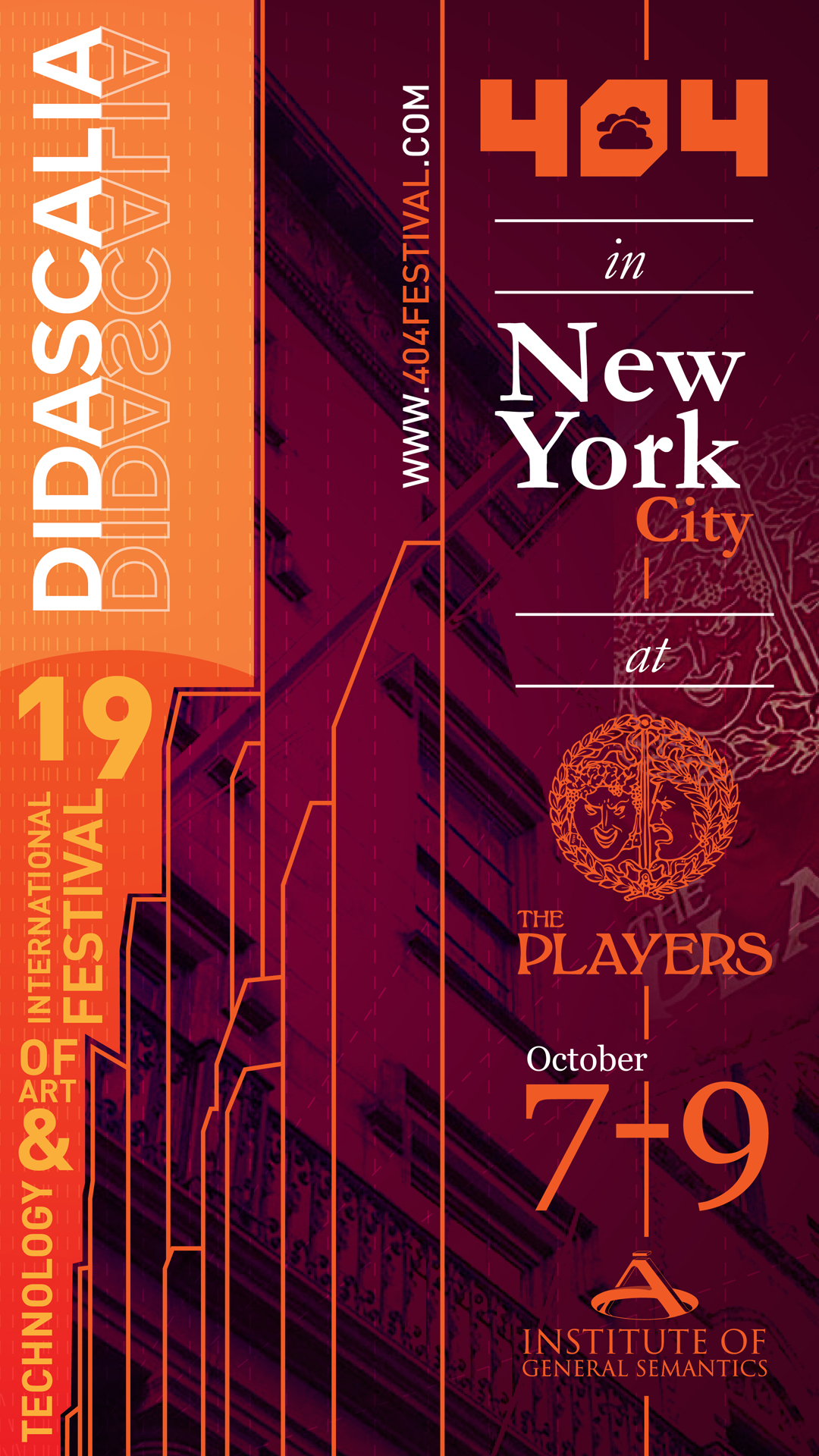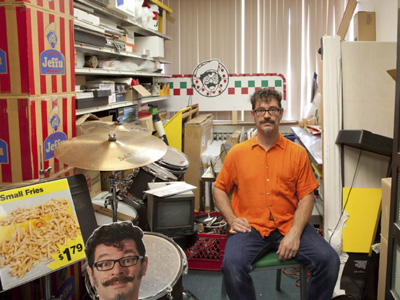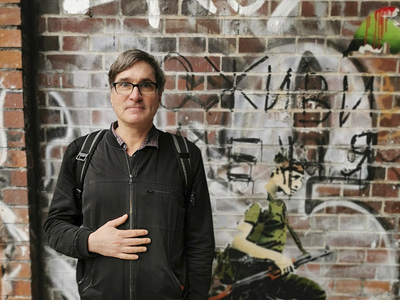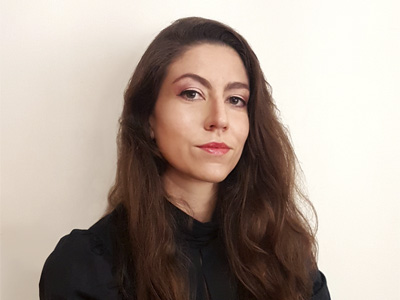
- EX-COMMUNICATION 2024
- EDITIONS
- 20th ANNIVERSARY 2023
- 19th EDITION / DIDASCALIA 2022
- 18th EDITION / HUMACHINITY 2021
- 17th EDITION / MEDIADEMIC 2020
- 16th EDITION / USA 2019
- 15th EDITION / JAPAN 2018
- 14th EDITION / ARGENTINA 2017
- 13th EDITION / COLOMBIA 2016
- 12th EDITION / ARGENTINA 2015
- 11th EDITION / RUSSIA 2014
- 10th EDITION / ARGENTINA 2013
- 2004 – 2012
- MANIFESTOS
- WHO WE ARE
- PARTNERS
- Language:


DIDASCALIA 2022

19th 404 International Festival of Art & Technology / Didascalia 2022
This year, 404 Festival celebrates its 19th edition in the U.S, in conjunction with the 70th annual Alfred Korzybski Memorial Lecture and the Ecologies of Mind, Media, and Meaning Symposium Sponsored by the Institute of General Semantics.
From 7-9 October, artists and researchers will meet at the historic venue The Players Club (Manhattan) to rethink the possible ways of confronting the impact of new technologies and media in our perception.
Full program: https://www.generalsemantics.org
Venue: https://theplayersnyc.org
Registration: https://www.generalsemantics.org/event-4882365
Manifesto Didascalia
The term “Didascalia” comes from old Greek, it means “teaching”, and it’s used to refer to the instructions that a dramatist or stage director gives to the performers. It describes the immediate environment, the physical appearance of the characters and their actions, without referring to what they think or feel. A didascalia is usually written in italics and between parentheses, written in the 3rd person.
Vast expanses without signages had invented oases so that Bedouins kept walking. Today, the mirage has devoured the desert.
In the theater, three walls are built to break a fourth one, but once the existence of that wall is revealed, an innumerable guild of walls rises. Like the wheel, which abandoned the world of inventions from the moment it began to spin. But no wheel is still so functional, so irreversible.
Spectacle has trapped us outdoors, and we have been left inside of it, under an open sky. Theatrical metaphors are now being used off stage; they even make more sense without it. Through everyday sets, invisible stages, anonymous directors, ghost writers and sponsors, the spectacle has become part of the system’s DNA. What narrative teaches us not to listen to the instructions of its own script?
Slowly and suddenly, we are left alone with the world. Who cares to be, not knowing that it exists? Algorithms train us and the system instructs us to interpret its own didascalia. How can we recover the meaning of light if it only fulfills its task shyly, perplexedly, inconclusively? Slowly and suddenly, we are left blind with the world. Since light exists, darkness tries to speak with it, but a didascalia separates them, and when it classifies them, it condemns them. Night, then, makes the day waste time until someone can rescue us. Darkness is not everything there is, but light is no longer the only instantaneous thing.
The void is full of circumstances that disinhabit us, and that, at the same time, constitute us. There are no blank spaces except for us. But when the margins have something to say, parentheses fear them. How many instructions are still needed so that something can begin and end?
In this century, what never turns off has become enemy of the eyes, and what is always heard has taken control of what we can listen. What script, what didascalia justifies and celebrates us?
There is a humanity being written in italics.
Manifesto 19h“404 International Festival of Art & Technology”
by Gina Valenti
September 2022
Argentina
Translation by Belén Nimo
 Español
Español







